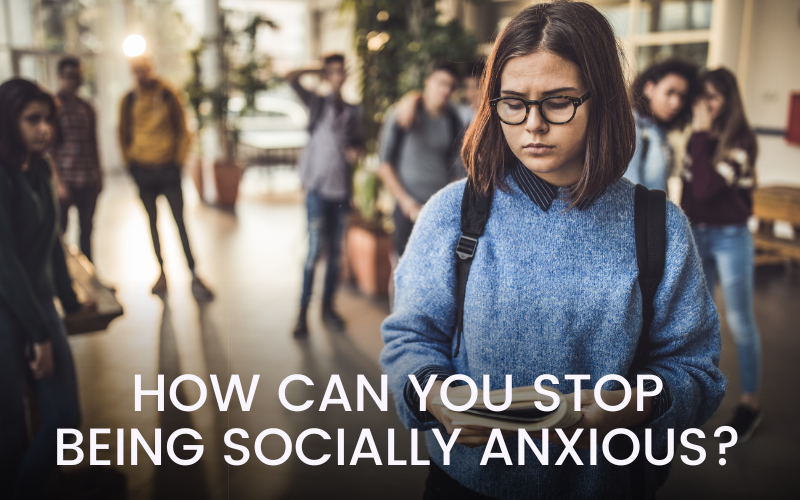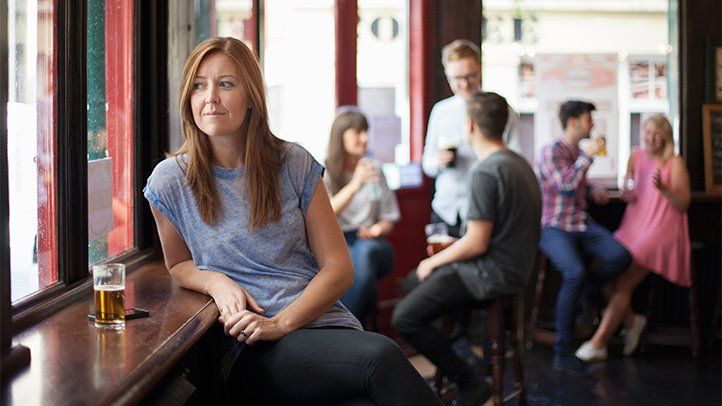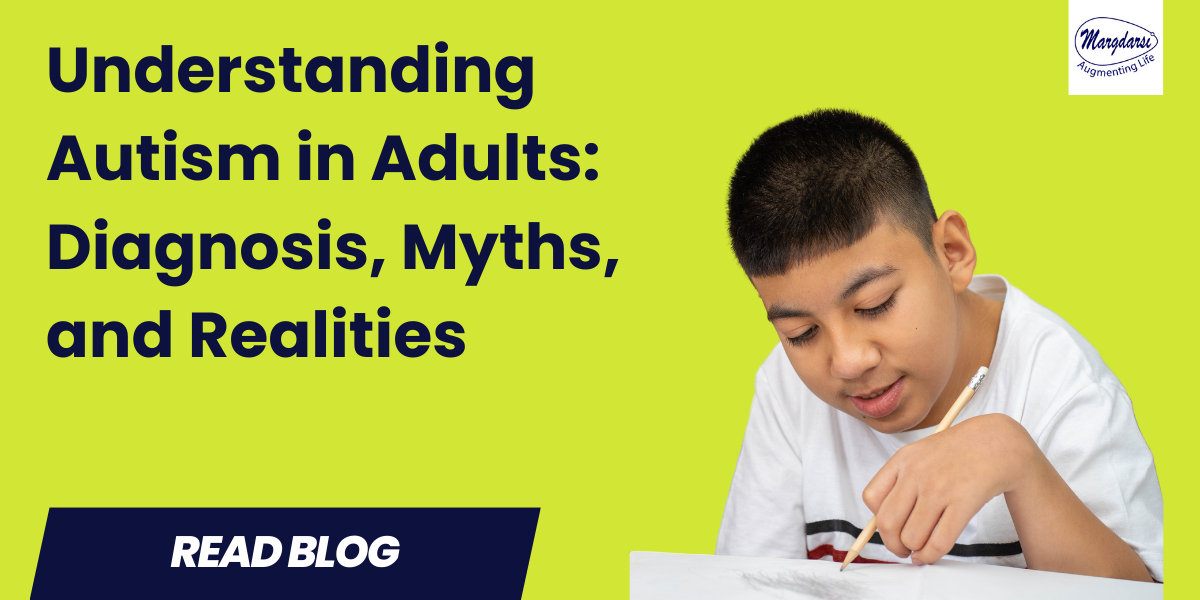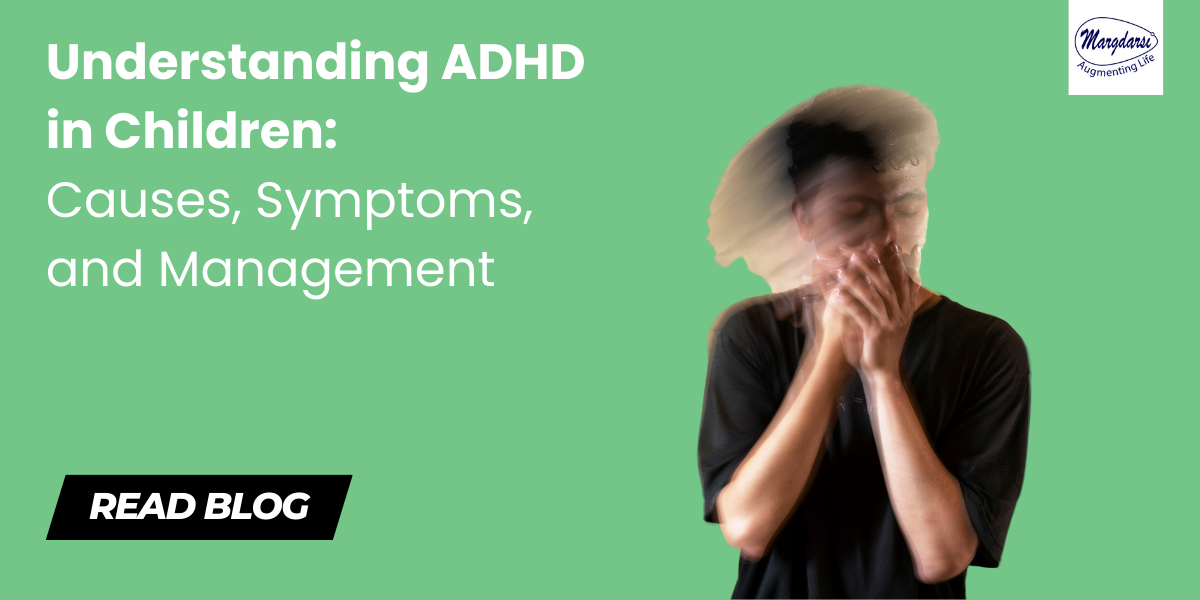
How Can You Stop Being Socially Anxious?
admin
- 0
Do you often feel nervous or self-conscious in social situations?
If so, you might be dealing with Social Anxiety Disorder, commonly known as social phobia.

But the good news is that you can learn how to stop being socially anxious and regain your confidence in social settings.
In this guide, we’ll explore practical steps on how to overcome social anxiety.
What Is Social Anxiety Disorder?
Social anxiety disorder (SAD), also known as social phobia, is a mental health condition that causes a significant amount of fear or anxiety in social situations.
People with SAD may worry about being judged, embarrassed, or humiliated in front of others.
This can lead them to avoid social situations altogether, which can interfere with their work, school, and relationships. There are many types of social anxiety such as social anxiety disorder dsm-5, social anxiety in children, social anxiety in children, social anxiety in students, social anxiety in students, social anxiety in college students.
Read More: Hearing Aid in Bhubaneswar
Steps To Overcome Social Anxiety Disorder

- Understand Social Anxiety Disorder:
To stop being socially anxious, it’s crucial to understand what social anxiety disorder is. It’s not just feeling shy; it’s an intense fear of being judged or humiliated in social situations. Recognizing this is the first step toward change.
- Seek Professional Help:
One of the most effective ways to tackle social anxiety disorder is by consulting a mental health professional. They can provide therapy, such as cognitive-behavioral therapy (CBT), to help you manage and overcome your anxiety.
Read More: Alzheimer’s Disease Treatments
- Challenge Negative Thoughts:
Social anxiety often stems from negative thoughts and self-doubt. Learn to challenge these thoughts by asking yourself if they are based on facts. Are people really judging you as harshly as you think?
- Gradual Exposure:
Start small. Gradually expose yourself to social situations that make you anxious. Over time, your confidence will grow as you realize that your fears are often unfounded.
- Practice Relaxation Techniques:
Relaxation techniques, like deep breathing or mindfulness, can help you manage anxiety in the moment. Practice these techniques regularly to build your coping skills.
Read More: Autism Spectrum Disorder Treatment in Odisha
- Build Self-Confidence:
Focus on your strengths and achievements. Remind yourself of your abilities and successes, no matter how small they may seem. Building self-confidence can counteract social anxiety.
- Join Support Groups:
Joining a support group or community of individuals who also struggle with social anxiety can provide a sense of belonging and understanding. Sharing experiences and tips can be immensely helpful.
- Be Patient and Persistent:
Overcoming social anxiety disorder is a journey that takes time. Be patient with yourself and don’t give up. Celebrate your progress, no matter how small.
Read More: Autism Treatment in Bhubaneswar
Remember, you don’t have to face Social Anxiety Disorder alone. Seek support from professionals, friends, and loved ones as you work toward stopping social anxiety.
With determination and the right strategies, you can regain control of your social life and enjoy the company of others without fear.
How Autism Early Intervention Can Nurture Development In Children?
Here are some additional tips that may help you to stop being socially anxious:
- Focus on the other person: When you’re in a social situation, try to focus on the other person and what they’re saying. This can help to take your mind off of yourself and your anxiety.
- Be yourself: People can tell when you’re being fake, so it’s important to be yourself. Don’t try to be someone you’re not, because this will only make you feel more anxious.
- Remember that everyone makes mistakes: Everyone says and does embarrassing things from time to time. If you make a mistake, don’t dwell on it. Just laugh it off and move on.
- Be patient: It takes time and effort to overcome social anxiety. Don’t get discouraged if you don’t see results immediately. Just keep practicing and you will eventually see progress.
Social anxiety disorder is a real and treatable condition. If you are struggling with any social anxiety disorder symptoms, please don’t hesitate to seek professional help. With the right treatment, you can learn to manage your anxiety and live a full and productive life.
Margdarsi’s Mental Health Clinic for Social Anxiety Disorder
At Margdarsi, we recognized that healing from within is just as important as addressing physical conditions.
This insight led us to create a sanctuary that not only offers mental peace in the embrace of nature but also fosters a profound sense of well-being.
This vision laid the foundation for the Margdarsi Mental Health Clinic, specializing in Social Anxiety Disorder.
Why Margdarsi is the Ideal Choice for Social Anxiety Disorder Treatment?
Comprehensive Therapeutic Assessment
Our clinic employs a holistic approach to Mental Health assessments, utilizing diverse methods such as counseling, stress management, relaxation techniques, and exercises aimed at replacing negative thoughts with positive ones. We are committed to addressing every aspect of Social Anxiety Disorder.
Personalized One-on-One Sessions and Interactions
At Margdarsi, we understand that the most significant hurdle for individuals dealing with Mental Health issues is the lack of someone to confide in. Therefore, we offer both one-on-one and group sessions, providing a safe space for open communication and support. There are many Social Anxiety Disorder in Bhubaneswar.
Cutting-Edge Technology Stack
We leverage the power of Psychological First Aid, a contemporary technique designed to alleviate initial distress resulting from traumatic events. This approach promotes short- and long-term adaptive functioning and coping strategies for individuals affected by Social Anxiety Disorder.
Discover a path to healing and well-being at Margdarsi’s Mental Health Clinic, where we are dedicated to supporting those with Social Anxiety Disorder on their journey to mental and emotional wellness. They have a Top Physiotherapy Centre in Bhubaneswar.
Call for Anxiety & Depression Counseling treatment in Bhubaneswar: 94370-05096
Frequently Asked Question
[saswp_tiny_multiple_faq headline-0=”h4″ question-0=”Why am I extremely socially anxious?” answer-0=”Social anxiety can result from a combination of factors, including genetics, brain chemistry, past experiences, and learned behavior. It’s essential to consult with a mental health professional to explore your specific triggers and develop coping strategies.” image-0=”” headline-1=”h4″ question-1=”What are the 4 coping skills for anxiety?” answer-1=”Coping skills for anxiety include deep breathing exercises, mindfulness meditation, cognitive restructuring (changing negative thought patterns), and progressive muscle relaxation. Developing these skills can help manage anxiety effectively.” image-1=”” headline-2=”h4″ question-2=”Can social anxiety be prevented?” answer-2=”While it may not always be preventable, early intervention, therapy, and self-help techniques can significantly reduce the impact of social anxiety. Seeking professional guidance is essential for effective prevention and management.” image-2=”” headline-3=”h4″ question-3=”Can social anxiety be cured naturally?” answer-3=”While some individuals may find relief through natural methods like relaxation techniques and exposure therapy, it’s crucial to consult with a mental health expert for a personalized treatment plan. A combination of natural approaches and professional guidance may be effective.” image-3=”” headline-4=”h4″ question-4=”Do I have social anxiety or am I just shy?” answer-4=”Shyness and social anxiety share similarities but differ in intensity and impact on daily life. Social anxiety involves intense fear and avoidance of social situations, while shyness is a milder discomfort in social settings. Consulting a professional can help determine your condition accurately.” image-4=”” headline-5=”h4″ question-5=”What is the 3 3 3 rule for anxiety?” answer-5=”The 3-3-3 rule involves naming three things you see, hear, and feel when experiencing anxiety. This grounding technique helps bring your focus back to the present moment, reducing anxiety’s intensity.” image-5=”” headline-6=”h4″ question-6=”Is social anxiety 100% curable?” answer-6=”While social anxiety can be effectively managed and symptoms can be significantly reduced, it may not always be completely cured. Treatment and coping strategies can empower individuals to lead fulfilling lives despite social anxiety.” image-6=”” headline-7=”h4″ question-7=”How do I stop overthinking social situations?” answer-7=”To stop overthinking, practice mindfulness, challenge irrational thoughts, and focus on the present moment. Cognitive-behavioral therapy (CBT) with a therapist can be particularly helpful in addressing overthinking tendencies.” image-7=”” headline-8=”h4″ question-8=”Are smart people socially anxious?” answer-8=”Social anxiety is not related to intelligence. People of all intelligence levels can experience social anxiety. It’s a psychological condition influenced by various factors.” image-8=”” headline-9=”h4″ question-9=”Why am I so scared to socialize?” answer-9=”Fear of socializing can be due to a range of factors, including past negative experiences, low self-esteem, or an underlying social anxiety disorder. Identifying the specific reasons behind your fear can help address it effectively.” image-9=”” headline-10=”h4″ question-10=”How do introverts stop overthinking?” answer-10=”Introverts can manage overthinking by setting boundaries, practicing self-compassion, and engaging in activities that align with their preferences for solitude and reflection.” image-10=”” headline-11=”h4″ question-11=”Does social anxiety mean low IQ?” answer-11=”No, social anxiety is not related to IQ. Intelligence and social anxiety are separate aspects of an individual’s life and personality.” image-11=”” headline-12=”h4″ question-12=”Can anxiety lower IQ?” answer-12=”Anxiety can impact cognitive function temporarily but typically does not lower IQ. Proper management and treatment of anxiety can help restore cognitive functioning.” image-12=”” headline-13=”h4″ question-13=”What personality type is most socially anxious?” answer-13=”Social anxiety can affect individuals of various personality types. It’s not limited to a specific personality type and can vary from person to person.” image-13=”” count=”14″ html=”true”]


